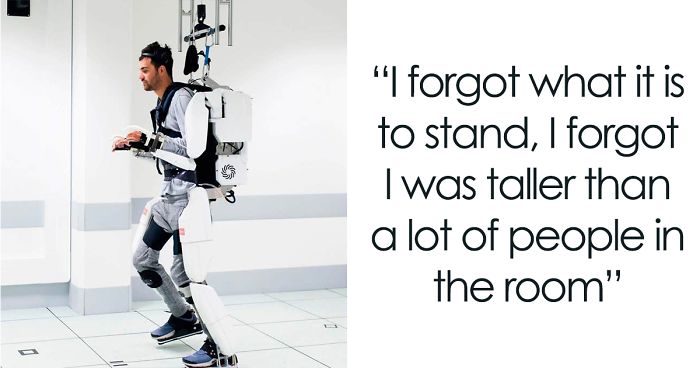
This Man Who Was Paralyzed For 4 Years Can Finally Walk Again With A Mind-Controlled Exoskeleton
Someone once said that the greatest inventions are those made to ease the life of others. And this time, we’re not talking about some conventional things made for the convenience of the masses, no. This time, all the undivided attention goes to the scientists putting all of their efforts to make humanity step up a level and help immobilized people walk again. Sure, it may seem like it’s straight out of a sci-fi book at first but just take a look at the brilliant work they’ve done already in making this completely paralyzed man take his first steps again after being bed-ridden for 4 years!
28-year-old Thibault was paralyzed 4 years ago after suffering a spine injury
Image credits: thelancet
A French man known by the name of Thibault suffered a severe injury to his spine after falling 15 meters at a night club four years ago. The injury left him paralyzed from the shoulders down but he later regained some movement in his biceps and left wrist and was therefore able to operate a wheelchair with his left arm.
But was able to walk again with this mind-controlled exoskeleton
Image credits: thelancet
The former optician spent two years in hospital after his injury and enrolled in the exoskeleton trial with Clinatec company and the University of Grenoble in 2017. He first started to use brain implants to control the movements of a virtual character in a computer game and only then moved on to walking in the suit himself.
He controls it via two sensors implanted between his skin and his brain
Image credits: thelancet
At this point, both his movements and the suit are far from being perfect but Thibault is really excited by the progress he’s made. He said walking in the exo-suit felt otherworldly. “It was like [being the] first man on the Moon. I forgot what it is to stand, I forgot I was taller than a lot of people in the room,” said Thibault.
Sensors record the activity from the part of the brain that’s responsible for movement and sensation
Image credits: thelancet
Saying it could help immobilized patients walk on their own in the near future is really optimistic but it’s a huge step for humanity nonetheless. Previous attempts in making such suits involved more invasive sensors and required wires to be attached to the computers. This robo-suit is completely wireless but is still not suitable for outside use, as it has to be hung from the ceiling for stability.
Then an algorithm interprets the signals and transforms them into movements
Image credits: thelancet
Even though the exoskeleton can only be used in the lab, for now, the whole research is being compiled in order to ease and improve the quality of life for patients with movement-related disabilities all over the world. At this time, the robo-suit is quite simplistic. It requires Thibault to think “walk” to set off a chain reaction, resulting in the suit moving his legs forward. He has a bit more freedom with his hand, which he can move in a three-dimensional space.
Enabling him to walk as a real-life cyborg
Image credits: thelancet
“Our findings could move us a step closer to helping tetraplegic patients to drive computers using brain signals alone, perhaps starting with driving wheelchairs using brain activity instead of joysticks and progressing to developing an exoskeleton for increased mobility,” Professor Stephan Chabardes, a neurosurgeon from the CHU of Grenoble-Alpes, said.
Watch the real-life cyborg in action here!
People on the Internet were mesmerized by the story
15Kviews
Share on Facebook
 Dark Mode
Dark Mode 

 No fees, cancel anytime
No fees, cancel anytime 







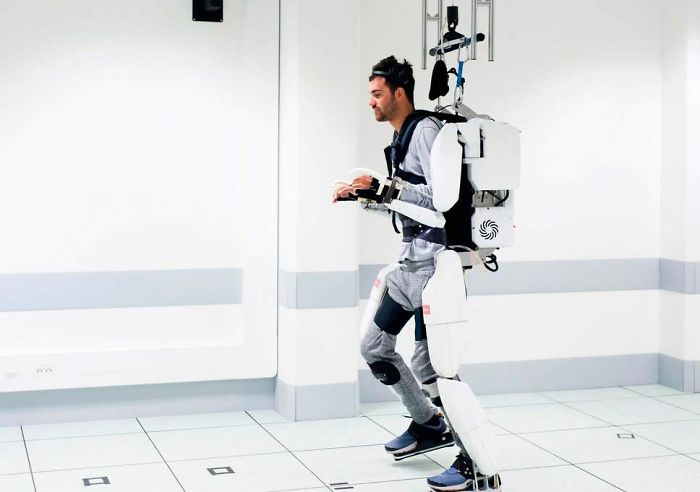
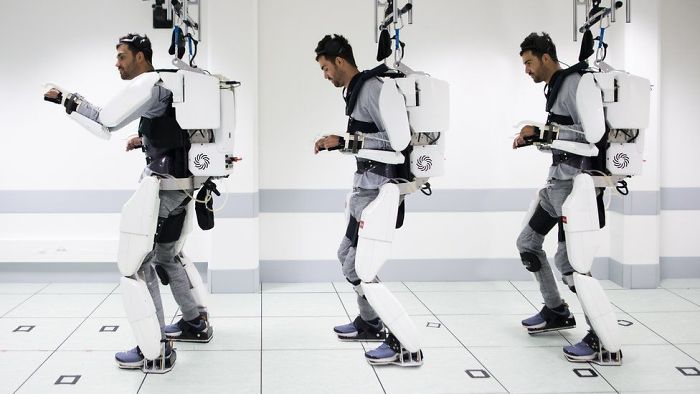
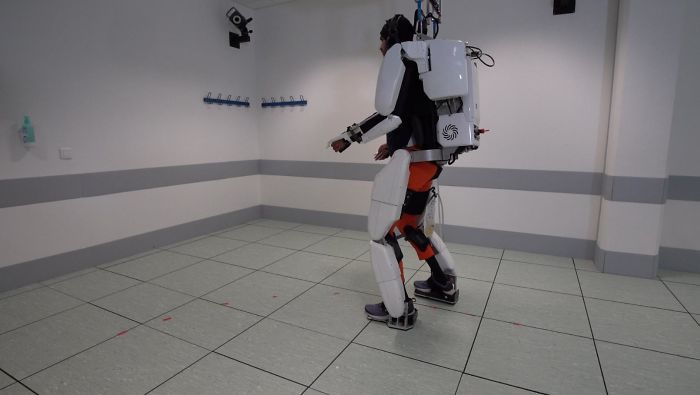
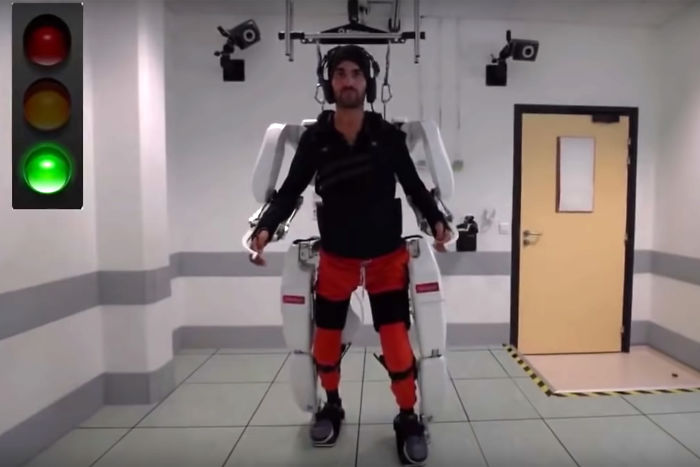
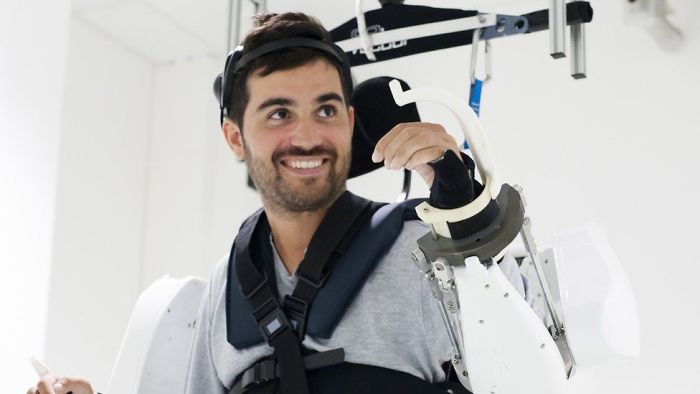




























































157
7